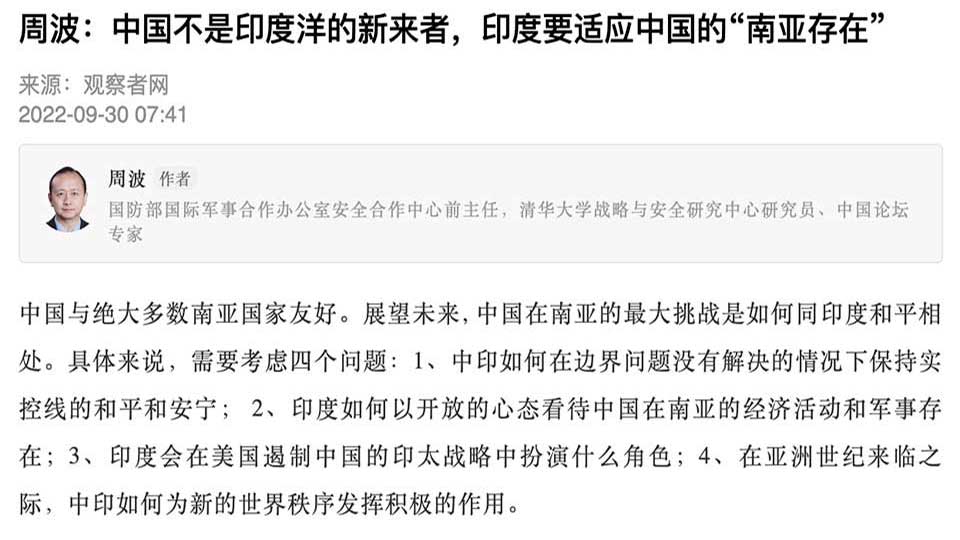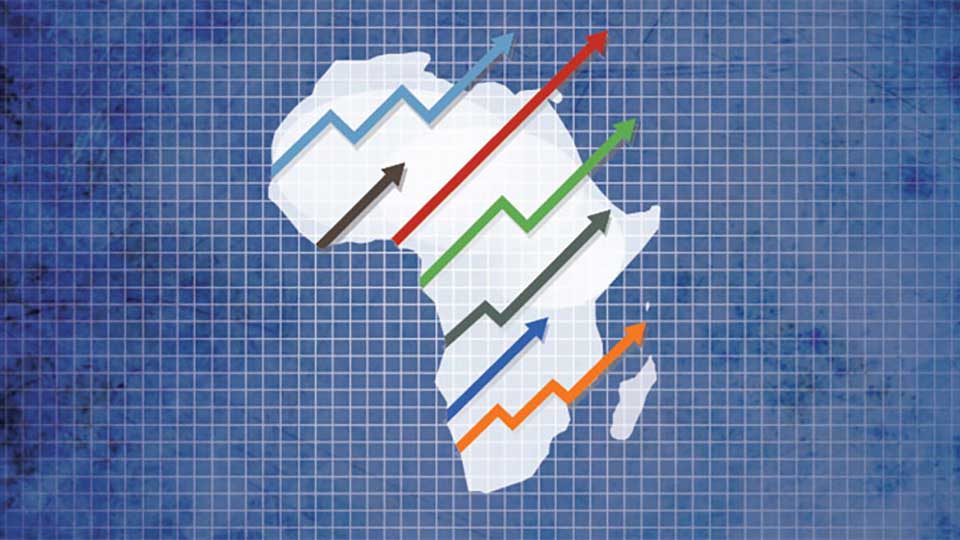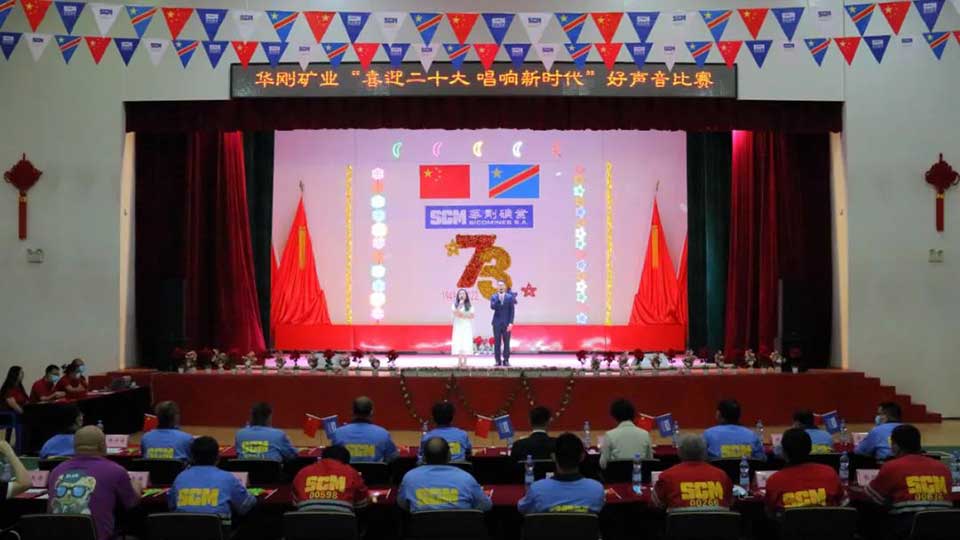Live Feed
The News Feed is curated by CGSP’s editors in Asia and Africa.
September sales of New Energy Vehicles (NEVs) in China increased at the slowest pace in five months, providing fresh hints that relentless COVID lockdowns and a slowing Chinese economy may ...
Chinese Consumer Preferences Now Influencing Ford’s SUV Sales in Other Global South Markets
The new Ford Territory SUV crossover that will go on sale next year in Mexico will feature styling and interior features that were conceived for Chinese consumers. The Territory is the product of ...
Nigeria Awards Huawei Contract to Build Electronic Border Surveillance System
Huawei will build a new satellite-based electronic monitoring system along sections of Nigeria’s 5,000-kilometer border in a bid to stem the flow of illegal immigrants and to provide early detection of security threats. ...
One of China’s Leading Mideast Scholars Expresses Sympathy For Iranian Protestors, Testing the Limits of What’s Acceptable in His Own Country
One of China’s most prominent Mideast scholars, Fan Hongda from the Middle East Studies Institute at Shanghai International Studies University, is expressing solidarity with anti-government protestors in Iran on social media. At the ...
Chinese Battery Giant CATL Bets on the Future of Cobalt By Buying a Big Chunk of CMOC
Strong demand for electric vehicles around the world helped to triple profits at Chinese battery giant CATL, the world’s largest battery maker. The company is reporting that third-quarter profits for the year will ...
Chinese-Built Plant to Turn Zimbabwe into Africa’s Biggest Steel Producer
A new Chinese-led plant could turn Zimbabwe into Africa’s largest producer of iron and steel. Zimbabwean president Emmerson Mnangagwa led the groundbreaking ceremony of the new $1.5 billion project, led by Dinson Iron ...
Libya Blockbuster Leads China’s National Day Movie Releases
Home Coming led China’s National Day holiday box office bonanza, racking up $144 million in ticket sales during its first week of release. The holiday is usually marked with movies aimed ...
Xinjiang Human Rights Council Vote Prompts Spirited Debate in Asia Over Why Governments Backed China
The two Asian governments with the world’s largest Muslim populations, Indonesia and India, have been on the defensive in recent days for their vote last Thursday at the United Nations ...
After Months of Delay, China Finally Begins Debt Restructuring Talks With Sri Lanka
Sri Lankan President Ranil Wickremesinghe informed the country’s parliament late last week that China had finally agreed to begin long-desired debt restructuring talks. During a recent visit to Tokyo, President Wickremesinghe ...
Arab Barometer: Arab Publics Favorable Views of China Decline the More They Learn About Chinese Foreign Policy
Two of the lead researchers at Princeton University’s Arab Barometer public opinion survey project shared some additional insights about the findings from their 2021 poll on how people in the MENA region perceive ...
WEEK IN REVIEW: Zambian Is Preparing for the First Round of Talks With Creditors on How to Restructure Its $14.87 Billion Debt
Zambian Finance Minister Situmbeko Musokotwane said his ministry is preparing for the first round of talks with creditors on how to restructure the country’s $14.87 billion debt. During a public meeting on Monday, Musokotwane refused to ...
One of China’s Largest BRI Builders Faces Economic Headwinds at Home
Business is booming for the China Communications Construction Company. It is one of the world’s largest construction companies and built many of China’s iconic BRI projects, including the controversial Port of Hambantota in ...
African Consumers Still Want Huawei Smartphones Even Without Google’s Services
When Huawei was added to the U.S. entities list in August 2020 that blocked the Chinese telecom giant from using American technology on its smartphones, most notably Google’s Android operating system,
Don’t Be Misled by All the Headlines About Apple Shifting Its Manufacturing out of China
Throughout much of 2022, Apple has been diversifying its manufacturing operations in Asia beyond China. India and Vietnam, in particular, appear to be the primary beneficiaries. This year alone, in fact,
China and India’s Bumpy Road to An “Asian Century”
China and India must find ways of tolerating each other’s military rise to ensure the dawn of an “Asian Century.” So argued Zhou Bo, a former official in China’s Ministry of Defense and ...
China’s Share of Nigeria’s Public Debt Now Stands at 3.8%, According to New Government Data
Nigeria’s Debt Management Office (DMO) released updated figures this week on the country’s ballooning public debt. The country’s lending jumped by more than $3 billion in the three-month period from March ...
World Bank: China’s COVID-19 Restrictions Contributes to Africa’s Economic Woes
The World Bank issued a sobering economic forecast for Africa on Wednesday, warning of a sharp slowdown in growth due to the multiple global crises that are disproportionately impacting the continent. Rising inflation, ...
Solomon Islands Explains It Wanted China References Stripped From U.S.-Pacific Island Countries’ Accord
The Solomon Islands caused a bit of a stir last month at a summit in Washington, D.C. when it refused to sign an initial draft of an accord between the U.S. and more ...
India’s Air Force Commander Provides New Details on the Hijacking Hoax Involving China-bound Airliner
New details are emerging about what happened when the captain of an Iranian airliner called in a bomb threat on Monday en route to the southern Chinese city of Guangzhou. In ...
While More U.S. Companies Are Moving Production From China to India, Ford is Heading in The Other Direction
Apple is one of a growing number of international companies moving quickly to diversify its manufacturing operations away from China to other countries in Asia, particularly India. In fact, the ...
All Portuguese-speaking Countries Move Up in Chinese Infrastructure Development Index
All eight of the world’s Portuguese-speaking edged higher in a key Chinese infrastructure development index that assesses the investment climate in 71 countries around the world. Brazil, Angola, and Portugal were the highest ...
Sicomines’ Expat Staff in the DRC Mark China’s National Day With a Patriotic Song Competition
230 expatriate staff members from the Congolese joint venture mining giant Sicomines gathered over the weekend in the Congolese mining city of Kolwezi to celebrate the Chinese National Day holiday with a patriotic ...
China Sends High-Level Public Security Bureau Official to DR Congo For Talks on How to Better Protect Chinese Nationals
The Chinese government recently dispatched a high-ranking member of the powerful Ministry of Public Security (MPS) to the Democratic Republic of the Congo for talks with security officials on how to better protect ...
Contrary to Public Perception, China is Actually Just a Bit Player in the African Mining Sector
While China is a major player in the DR Congo’s mining sector, that is not the case elsewhere on the continent, according to a new report by the African Climate Foundation. In fact, China’s ...
Clarification: The Chinese Victims of Last Week’s Gun Attack in Karachi Were Pakistan Citizens, Not Dual Citizens
A number of international media outlets including Al Jazeera, Reuters, and the Associated Press, incorrectly reported last week that the three Chinese victims of a shooting attack at a dental clinic in the Pakistani port city of Karachi ...
The China in Africa Podcast Recognized by the Carnegie Endowment as One of “The Best Foreign Policy Podcasts”
The podcast team at The China-Global South Project received a happy surprise over the weekend when our China in Africa show was named among “The Best Foreign Policy Podcasts” by the prestigious think ...
WEEK IN REVIEW: Namibia Is Emerging as a Key Lithium Producer for the Chinese Market
Namibia is emerging as a key lithium producer for the Chinese market. In August, 25,000 tons of the strategic metal were shipped from the Port of Walvis Bay with another 50,000 tons prepped to ...
Chinese National Killed, Two Others Injured When Gunman Opened Fire in a Karachi Dental Clinic
Pakistani authorities now believe that a gunman “singled out and targeted” an ethnically Chinese-owned dental clinic in Karachi in an attack that killed one and injured two.
Two-Day China-Zambia Investment Forum Gets Underway in Lusaka
Zambian President Haikinde Hichilema, alongside Chinese ambassador Du Xiaohui opened a two-day investment forum on Wednesday in the capital Lusaka that aims to bring together businesses from both countries and generate more FDI. ...
Chinese Contractors Almost Finished Upgrading Nairobi’s International Airport Terminals
Kenyans got their first look at the newly-upgraded international terminals at Nairobi’s Jomo Kenyatta International Airport, which will soon reopen to the public. The $8 million facelift of terminals 1B and C took ...
Introducing CGSP Intelligence
CGSP Intelligence gives you the information advantage on Chinese activities in the Global South. CGSP Intelligence is launching in Summer 2025, with analysis and a full set of data tools designed for corporate and enterprise leaders.

















































